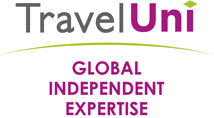Latest survey results from frontline UK travel bookers reveals a delayed ‘Peaks’ and ‘Waves’ season and top destinations.
The latest research by Equator Learning, the largest global training and engagement platform for the travel trade, shows peak booking times have been delayed from the traditional January timing but are now in full swing and will continue through to the end of March.
More than 350 frontline travel agency and tour operator staff responded to the survey, which asked for their input and recent experience of customer booking activity for trips now and over the coming months. The results, known as FrontLine Findings, reflect a solid 46% of those surveyed saying the peak booking time would be to the end of this month, with 19% citing March and April as a peak time for travel bookings.
With unique access to travel agency and tour operator sales staff, the latest study follows last year’s survey, which delved into how the industry was adapting and responding to Covid.
When asked if they thought international travel would pick up this year, 41% of respondents believed Q2 of this year would be when international travel will really begin to pick up, with Q3 gaining the vote of 39% of those surveyed. This reflects the view from last year’s data when 46% said they thought travel would begin to pick up in Q2 of 2022.
The majority of respondents book leisure travel and, significantly, bookings for luxury trips have risen to 71%, reflecting pent up spending power and a desire for ‘trip of a lifetime’ experiences.
There was good news for the Cruise sector too with an increase to 56% of the respondents selling Cruises. The data showed the ‘Waves’ season will carry on into Q2, with 26% believing the ‘Waves’ will continue into March and April.
Besides the continuing strength of southern European destinations for the coming season, several long-haul regions have come to the fore, with the Caribbean (especially Barbados) strengthening, followed by North America and the Middle East (particularly Dubai). Southeast Asia has continued to suffer from tighter travel restrictions, whilst Australia is only now benefiting from clarity on opening up to visitors.
‘’It’s fascinating to see how booking patterns are developing so fast in recent weeks as news of COVID levels throughout the world ebb and flow, but there are some key themes underlying these booking trends’’, says Ian Dockreay, Chief Executive of Equator Learning. ‘’As an example, island destinations such as the Balearics, the Canaries, the Caribbean, Mauritius, the Maldives, Malta and the Greek Islands are very popular. Clearly travellers see these as ‘safer’ destinations because of their smaller populations, and their perceived ability to curb the virus’’.
The survey also covered how working circumstances for frontline staff are changing. It was encouraging to discover that those looking for jobs are significantly down from late last year, with only 10% of respondents saying they were still job hunting. Normal working hours continue to return as the sector bounces back, with 78% of those surveyed now working their normal hours compared with 63% last year. However, a third of those who normally work in an office are still working from home.
On the training front, of the more than 350 surveyed, the most popular way to train remains through e-Learning with 44% spending 1-3 hours per week improving their knowledge through training, and nearly 20% spending more than 3 hours per week. Webinars showed a slight decline but remained popular. No doubt with the number being broadcast, novelty of presentation is key.
During the survey those taking part were asked which courses they would like to see more of, and the resounding answer was attractions and theme parks followed by hotel groups, with travel insurance making a not-so-surprising appearance.
‘’I’m delighted to see the results of this survey reflecting positive changes in our industry at last’’, says Ian Dockreay. ‘’With more staff returning to working normal hours, higher booking values and increasing volumes of sales, plus long-haul travel high on travellers’ agendas, we can all feel more encouraged’’.



